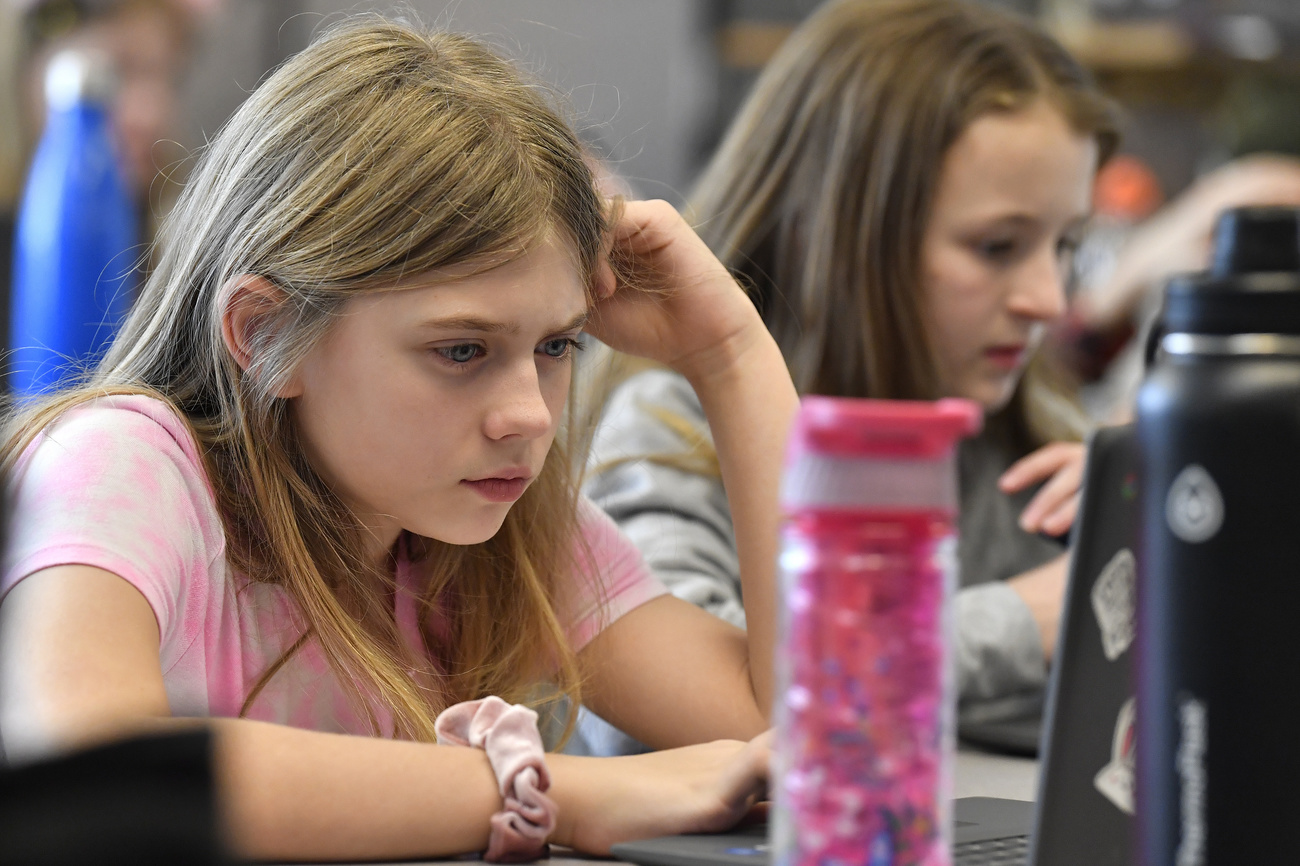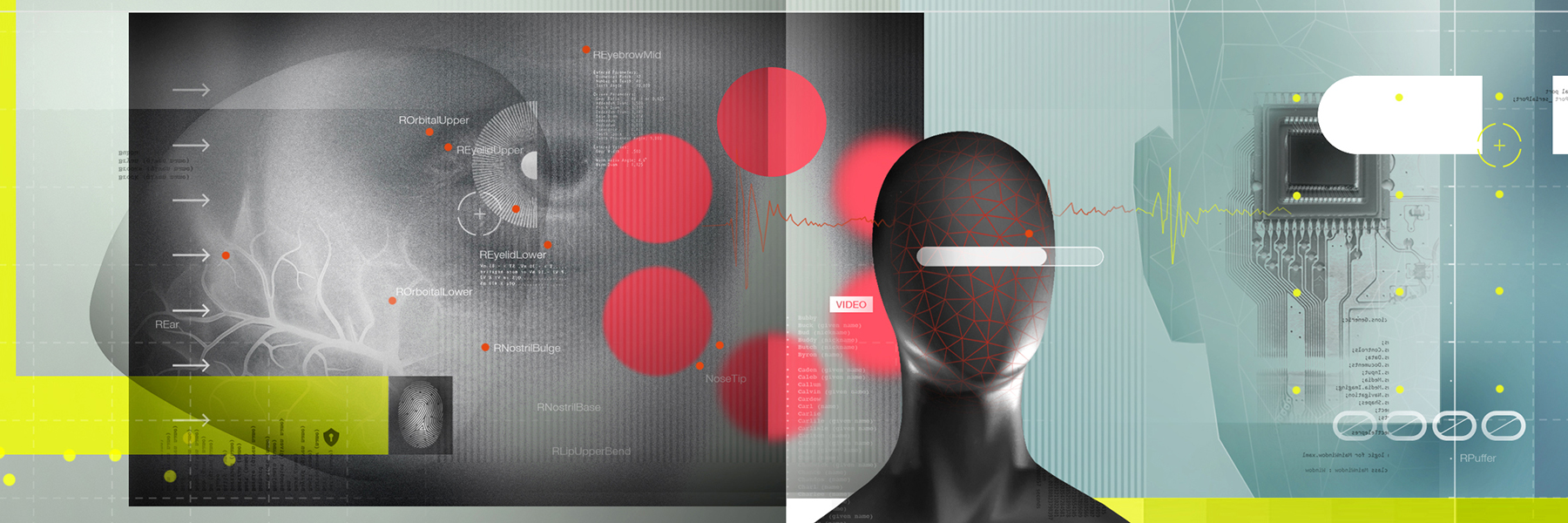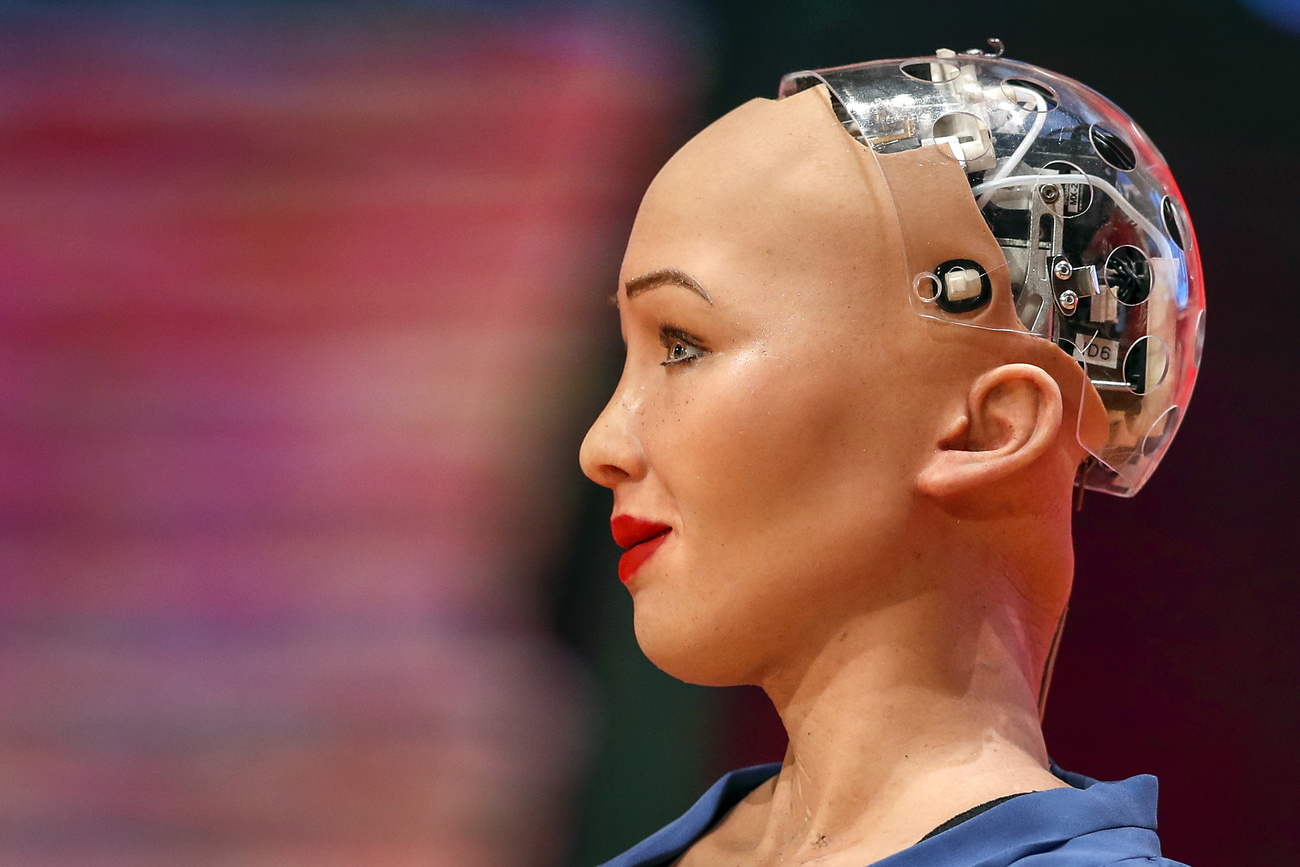What to expect from the ITU ‘AI for Good’ summit

The United Nation’s flagship event dedicated to artificial intelligence (AI) brings together industry, government and academia heavyweights in Geneva to discuss, among other things, governance issues. Here is what to know.
A lot has changed since 2019, when the International Telecommunication Union (ITU) last held its flagship “AI for Good” conference in Geneva. The recent rise of generative artificial intelligence systems, such as ChatGPT, which can create text, images and even computer code in response to user prompts, has sparked both wonder and concern among governments, businesses and the public.
The 2023 “AI for Good” summit will allow for global discussions about the technology – which can be used to increase productivity, but also to spread disinformation.
“It’s a real opportunity for the world’s leading voices on AI to come together on the global stage and to address governance issues since the rise of generative AI,” Doreen Bogdan-Martin, the ITU’s secretary-general, told journalists ahead of the two-day conference, which runs until Friday in Geneva.
Some 3,000 participants, including government and UN officials, private sector executives and academics, are expected to attend the event, which will mostly feature panel discussions on ways AI can be used to advance the UN’s Sustainable Development Goals (SDGs) – a set of 17 targets for 2030 including ending poverty and hunger that the international community set for itself.
What is the ITU and its conference ‘AI for Good’?
The ITU is a Geneva-based United Nations agency whose members include all 193 UN member states and over 900 companies, universities and other organisations – which is an unusual set-up within the UN system, where governments typically pull the ropes. The agency sets technical standards and allocates global radio spectrum and satellite orbits.
The “AI for Good” global summit, which the ITU first organised in 2017, is the UN’s top conference dedicated to AI. “There is no event in the world on artificial intelligence which brings so many different types of stakeholders together,” says ITU’s Reinhard Scholl, co-founder and managing director of “AI for Good”.
Since 2020 and the Covid-19 pandemic, “AI for Good” has transformed into an all-year online platform that, as of today, has hosted around 500 webinars with AI experts on the technology’s opportunities and risks.
Why the tagline ‘AI for Good’ at a time when the technology is increasingly being scrutinised?
The ITU says it wants to promote the use of AI “for the good of society”, but it also recognises that the technology poses challenges.
Angela Müller, head of the NGO AlgorithmWatch CH, says she is “a bit sceptical” about “the ‘AI for Good’ narrative” which she argues “often has a techno-solutionist perspective and portrays AI systems like the main solution to global challenges”. According to her, this does not mean that AI algorithms cannot be part of the solution. But AI itself “will not ‘solve’ climate change or ‘combat’ social inequality”.
Though she does not believe that the summit’s organisers have bad intentions, Müller says “the ‘AI for Good’ narrative often disregards the fact that the development and the use of AI systems can have a huge impact on humans and society, reinforce existing inequalities and consume enormous resources”.
At its 2023 AI summit in Geneva, the ITU is planning two roundtables on the “guardrails needed for safe and responsible AI and the potential development of global AI governance frameworks”.
Why is it urgent to talk about governance?
In recent months, prominent technology experts including Tesla’s CEO Elon Musk and Apple’s co-founder Steve Wozniak have voiced their concerns about AI systems and have called for a pause in their development. Microsoft, which backs OpenAI, the company that created ChatGPT, wants governments to regulate high-risk uses of AI.
The UN Human Rights Office (OHCHR) – from its high commissioner to its independent experts – has started to document AI uses that violate human rights.
“AI generally, not only Generative AI, raises major concerns about built-in discrimination, racism and misogyny, pervasive privacy violations and lack of transparency,” says Seif Magango, a spokesperson for the OHCHR. “There is no time to waste, as social media has already provided us with a chilling example of how failure to regulate emerging technologies can lead to major consequences for our societies.”
In June, the European Parliament passed a draft law known as the AI Act and the world’s first comprehensive set of regulations for artificial intelligence. It aims to restrict some of the riskiest uses of the technology. Many other countries, including the United States and China, both competing for AI leadership, are drawing up rules to control the fast-evolving industry.
Within the UN system, UNESCO has produced the first global standard on AI ethics rooted in human rights, which all UN member states adopted in 2021. Its goal is to provide guidelines for countries building legal frameworks for AI.
“On the international scene, we need to get agreement that these technologies need to be developed when they are compliant with the human rights framework, which is not the case today, because it is still being driven by commercial purposes, by competition, by geopolitical considerations,” Gabriela Ramos, an assistant director-general at UNESCO in charge of overseeing the ethics of science and technology, told journalists ahead of the summit.
Can we expect an agreement on governance at the summit?
The short answer is no. “There will be no formal declaration, negotiated statement or decisions,” says Scholl from the ITU. But conversations at the summit could still allow for a convergence on how to address the challenges that AI poses.
“The ‘AI for Good’ global summit has the potential to generate concrete recommendations around AI governance mechanisms. We also know that several stakeholder groups are coming together to develop proposals for solutions in this regard. We hope to hear more about these at the summit,” he added.
Over the years, conversations at the summit have led to the creation of focus groups to develop new standards. One of them, launched in partnership with the World Health Organization (WHO) is looking to evaluate the diagnoses and treatment decisions made by AI.
Will critical voices be heard?
Looking at the line-up of participants, executives from Amazon, Google DeepMind and other leaders from the fields of industry, diplomacy and academia top the bill. NGOs, particularly those defending human rights, are underrepresented.
Yet NGOs are often the ones working directly with the people whose rights are threatened by AI developments. When the EU passed its draft regulation, civil society groups called out the text’s failure to also protect migrants from surveillance.
“To my knowledge, we haven’t been invited to the 2023 ‘AI for Good’ conference, and certainly no one from the team is attending this year,” a spokesperson for Human Rights Watch’s tech team said.
Amnesty International, which in 2017 had sent its then secretary-general Salil Shetty, declined to comment on its presence at the summit.
Another NGO that focuses on human rights in the digital space said the event was not a priority.
However, beyond large human rights groups, the ITU says 270 NGOs are participating in the event, which anyone is free to attend either physically or remotely. Scholl points out that the “ITU works closely with UN sister agencies including the UN Refugee Agency and UN Human rights, the main UN bodies responsible for discussions with civil society on AI and human rights”.
The UN Human Rights office confirms that the “AI for Good” summit is “an important venue for discussions on this critical issue” and it will take part in some of its sessions. “We hope human rights will be a common thread running through all the sessions,” says Seif Magango from the OHCHR.
Edited by Virginie Mangin

In compliance with the JTI standards
More: SWI swissinfo.ch certified by the Journalism Trust Initiative












You can find an overview of ongoing debates with our journalists here . Please join us!
If you want to start a conversation about a topic raised in this article or want to report factual errors, email us at english@swissinfo.ch.